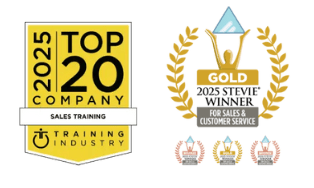Let’s begin by talking about the world-renowned American writer, philosopher, poet, speaker, and public figure, the late Dr. Maya Angelou. The author of a 50-year continuum of books, articles, poems, movies, and television shows, Dr. Angelou famously wrote:
“I have learned that people will forget what you said, people will forget what you did, but people will never forget how you made them feel.”
But surely what Dr. Angelou wrote does not apply to business leaders, right? And most certainly not to sales leaders? Allow me to tell you a story, and you decide…
A close friend recently retired from ten years as President of a 1 billion dollar business unit (BU) in a premier global company. His accomplishments were breathtaking. His BU doubled revenue organically along with mergers and acquisitions, entered international markets for the first time, expanded profit margins, raised net promoter scores dramatically, and more.
When he retired, I congratulated him and asked him what he was most proud of within his legacy. He instantly said:
“That’s easy. The proudest elements of my legacy are two things: my results and my direct reports’ leadership team. My team will continue our path and sustain our accomplishments trajectory.”
I quoted Dr. Angelou’s above declaration and asked him what he thought. He shook his head.
“No, Vince, she’s wrong. At the BU president level, objective attainments are the only things that remain in people’s minds, not feelings. I’ll say it again… my legacy is two things: what I achieved, and the people I left in place to continue our journey.”
He invited me to coffee a few months later. He started our conversation with:
“Maya Angelou was right, and so were you. When the new BU President took over, the first thing he did was replace all my direct reports with people he had worked with previously—thus overwriting the team’s part of my legacy. Further, he and his staff quickly adopted a new growth strategy. His strategy will likely work, but it bears no resemblance to mine. Worse, he has frequently summarized our BU’s prior ten years of success by saying, ‘The markets were booming. A rising tide lifts all boats.’ Therefore, the results part of my legacy has also been marginalized.”
I told my friend I was sorry to hear this. I asked him how he felt about it. He smiled broadly and said:
“That’s why I asked you here. I’m excited to share the really important news with you. I’ve gotten dozens of catch-up phone calls and emails since I retired. People at all levels from my BU can’t wait to tell me how much they enjoyed coming to work, how I positively impacted not just their careers but also their values, and how they grew from my coaching and encouragement. Several thanked me for giving them a second chance when all I thought I was doing was developing them. No one spoke of percentages or revenue. No one spoke of big wins or acquisitions. Instead, they spoke of connection, authenticity, environment, support, and trust. I know now that my legacy IS how my leadership and communications made people feel while achieving their results, and I couldn’t be prouder.”
So, how can we maximize our legacy, starting right now if we are not following this path already? Where will we go for specific ideas to arm us to achieve this in our unique environments? Google tells us there are 57,136 books on leadership available on Amazon. With podcasts, social media posts, articles, workshops, symposiums, and videos, we have been provided hundreds of thousands of sources and guides to consider in our respective organizations. All we need to do now is choose our own path from this galaxy of available resources and dig in!
Personal Challenge:
Let’s immediately commit to ensuring our teams come to work every day in an organization where results and environment focuses are in harmony. This will support our attainment of superior outcomes while also reinforcing our best leadership legacy.




